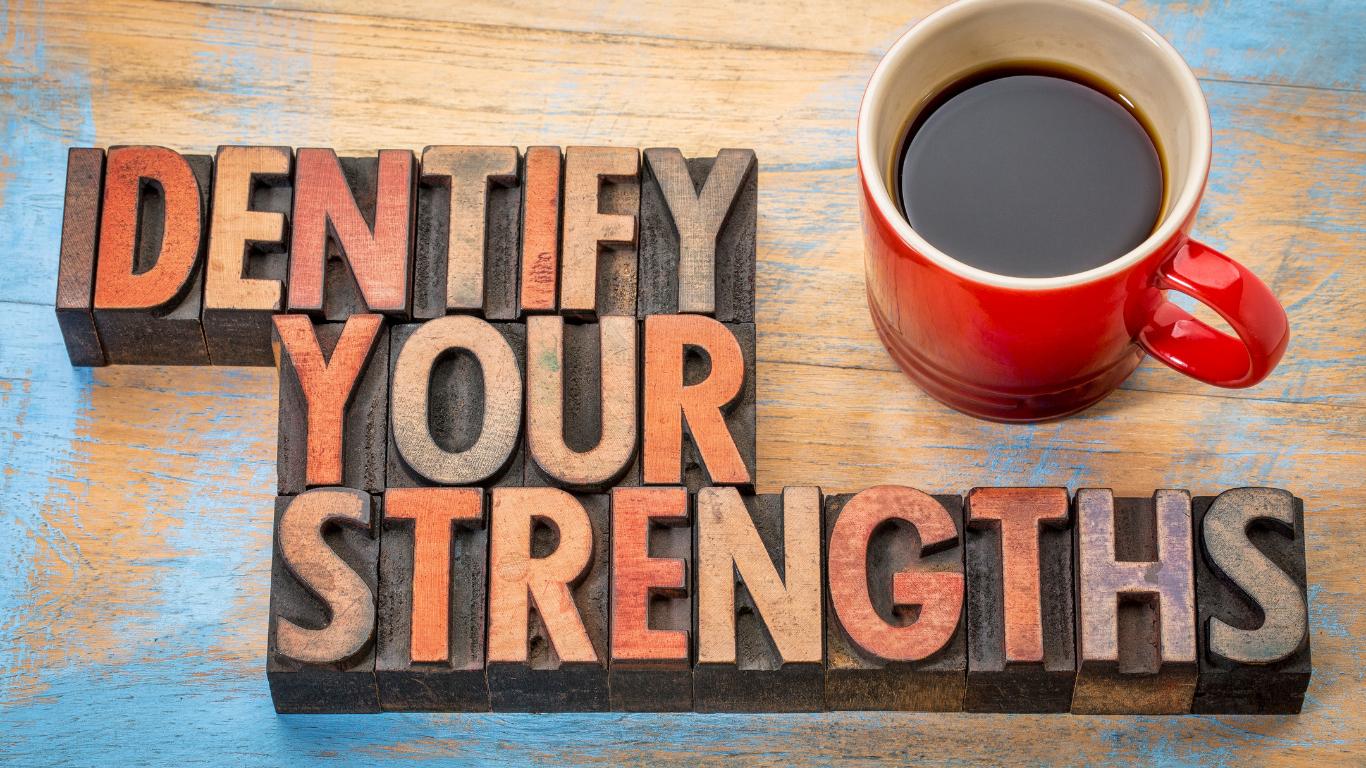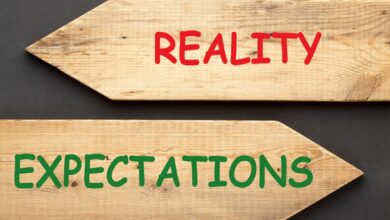What Does Being Delusional Mean in a Relationship?

Delusion can impact how people relate to each other in relationships. It’s a psychological phenomenon to be aware of. An illusion is when a person’s ideas and beliefs don’t match reality. It happens when they imagine things that are not true. Delusion is often linked to mental health problems. But we should also consider how it affects relationships. To have good and happy relationships, knowing about Delusion is essential. This will help you understand what it means and avoid it.
Explanation of the Significance of Understanding Delusion’s Impact
Knowing how delusions affect relationships is essential to keep them strong and happy. If you believe things that aren’t true, it can make you see things differently, expect too much, and cause problems understanding each other. This can lead to fights and disappointment, and By recognizing and addressing Delusion, individuals can work towards creating a healthier relationship environment based on trust, authenticity, and mutual understanding.
A brief overview of the article’s purpose and structure
This article explains what it means to be delusional in a relationship. It explores different aspects of the topic. Let’s talk about Delusion and what it means for our relationships. Delusion is a psychological concept; we’ll explore what it is and how it affects us. We’ll also look at the types of Delusion in relationships and how they affect partners.
The article gives tips to spot and handles Delusion in relationships. Let’s talk about why it’s essential to think about ourselves, openly share our thoughts, and get help when needed. We will share real-life stories to show how delusions can hurt relationships.
In summary, this article says it’s essential to learn the truth about yourself and how to have good relationships. To do this, you should be aware of your own feelings, care how others feel, and To have better relationships, it’s essential to recognize and deal with delusions. This can create a supportive partnership where you both feel happier.
We’ll look closer at Delusion in relationships in this article. We’ll talk about what it means, how it affects relationships, different types of Delusion, how to recognize it, and ways to deal with it. We want to help you improve your relationships. To do this, we’ll give you examples from real life and practical tips that you can use.
Defining Delusion in the Context of Relationships
People can get delusional when it comes to relationships. This means they have wrong ideas about their partner, the relationship, or themselves. People sometimes have strong beliefs that aren’t based on evidence or reason. This can lead them to have exaggerated views that aren’t true.
The psychological implications of Delusion in relationships can be significant. When you have crazy thoughts, you can hope for things that won’t happen. That can make your picture of a relationship does not match reality. This disconnect between expectations and reality can breed frustration, disappointment, and resentment, strain the relationship.
Furthermore, Delusion can also affect individuals’ self-esteem and self-worth. If someone thinks they don’t deserve love or their partner’s actions show they’re not good enough, they could feel unworthy and lack confidence. When you don’t see yourself clearly, it can stop you from growing and make the relationship sad.
Clarifying Delusion’s Relevance to Relationships
Understanding Delusion is crucial in comprehending the complexities of relationships. People with delusional thinking may misunderstand what their partner means or does. This can cause miscommunication, confusion, and fights. It can mess up problem-solving by basing it on wrong ideas.
Moreover, Delusion can erode trust and intimacy within a relationship. When one partner consistently holds delusional beliefs, it can create a sense of emotional disconnection and undermine the foundation of trust. People with this condition may have difficulty telling whether their partner is acting normally. This can make them feel more insecure, jealous, and possessive.
Identifying common signs of Delusion in a Relationship
Recognizing the signs of Delusion is crucial for addressing and mitigating its impact. Some common symptoms of Delusion in a relationship include:

- People sometimes have an idealized perception of their partner. They think their partner is perfect and ignore any flaws or harmful actions.
- When someone expects their partner or relationship to be perfect, it’s unrealistic. This leads to disappointment when things don’t measure up.
- Jealousy and possessiveness can make you behave in irrational ways. You may become overly protective or suspicious without any real reason. These feelings stem from insecurity.
- One partner exhibits an overwhelming desire to exert control over the other’s actions, decisions, or social interactions, often stemming from irrational fears or delusional beliefs.
- The person won’t accept proof that contradicts their wrong ideas. They stick to their strange view of the world and ignore feedback.
- The Relationship Between Toxic Masculinity and Male Delusion.
If you see these signs early, you can deal with Delusion and improve your relationship. If people realize they have wrong beliefs, they can do something about it. They can try to change them and make their relationship better.
The Impact of Delusion on Relationship Dynamics
Delusion in a relationship can lead to distorted perceptions and unrealistic expectations. If one or both partners have crazy ideas about each other or their relationship, they don’t see things correctly. Sometimes people with delusions see things differently. They may think their partner meant something in a way that’s not true. It can be challenging for them to understand what their partner really means. When people don’t communicate well, there can be confusion, and disagreements happen more. That can lead to fights and bad feelings between people.
Moreover, Delusion often gives rise to unrealistic expectations. Sometimes, people want their partner to be perfect always and ignore that relationships have ups and downs. People can feel unhappy and disappointed when their relationship expectations are unrealistic. This can lead to negative feelings like anger or frustration and feeling like they can never be satisfied.
Communication breakdown and misinterpretations
Delusion can significantly impact communication within a relationship. People who hold onto their beliefs may find it hard to say what they feel or need. Sometimes people can’t express what they really want, causing confusion and confusion between them. If you believe unreal things, hearing your partner well and understanding them right can be challenging. This makes it even harder to communicate.
Misinterpretations are common when Delusion is present. Sometimes, when people are delusional, they imagine things that aren’t true. For example, they might think that innocent words or actions have secret meanings. This can lead to unnecessary conflicts, accusations, and defensiveness. Communication can be complex when people misunderstand each other. This can make it tough to connect and work things out.
Loss of trust and emotional disconnect
Delusion can erode trust within a relationship. If one partner always has crazy thoughts, things are uncertain and hard to predict. Sometimes, if you’re the sane one in a relationship, you might not be sure what your partner thinks or how they’ll react. This can make you lose trust in them over time. Belief is based on shared reality and open communication. Delusion can damage that trust.
Furthermore, Delusion contributes to the emotional disconnect between partners. It can be challenging for the partner who is not experiencing delusions to connect with the one who is. The distorted beliefs and perceptions make it difficult to truly understand and feel for them. You might feel alone and unhappy when you don’t share emotions with your partner.
Adverse Effects on Intimacy and emotional well-being
Delusion has detrimental effects on intimacy and emotional well-being. Intimacy thrives on vulnerability, authenticity, and mutual understanding. However, Delusion creates barriers to these essential elements. If one partner has crazy ideas, they might find it hard to open up or be themselves. When you do not have a genuine emotional bond, getting close to someone and forming solid relationships is hard.
Moreover, Delusion takes a toll on the emotional well-being of both partners. Someone with delusions might feel stressed, anxious, and unhappy because their ideas don’t match reality. A partner who is not delusional may feel upset, too, when their partner has false beliefs. This can make it challenging to continue the relationship. Breaking up with someone can affect more than just your relationship. Your mental health, self-esteem, and happiness can also be impacted. You may also like to read The Importance of Education in Combating Male Delusion.
To avoid harm, it’s essential to recognize and deal with Delusion in a relationship. To Maintain healthier relationships, it’s important to talk honestly, challenge distorted beliefs, and seek professional help when needed. This helps build trust, authenticity, and emotional connection.

Types of Delusion in Relationships
People can get in trouble when they imagine a perfect partner who doesn’t really exist. It’s called romantic Delusion, and it can cause problems. When someone has a partner, they might have an idea of the perfect person in their head. They might think their partner is exactly like this, even if it’s untrue. Sometimes, people believe their partner will be perfect and unique. But when the partner doesn’t live up to those high expectations, it can make them unhappy. When someone is delusional, they might focus on their partner’s flaws and feel disappointed with reality not meeting their perfect idea.
Jealous Delusion: Irrational suspicions and possessiveness
Jealousy can make you think untrue things about your partner. It may also make you want to control them and fear losing them. People with this Delusion often don’t trust their partner, even if there’s no reason not to. They may interpret innocent interactions or behaviors as indications of infidelity or disloyalty. People with delusional beliefs act possessively toward their partners. They monitor their activities, invade their privacy, and isolate them from their friends and family. Jealousy can cause problems in relationships. It can make people tense, generate arguments, and upset them.
Idealization delusion: Idolizing a partner and disregarding flaws
Sometimes people have an idealized image of their partner. They see only the good things and ignore the wrong things. This is known as idealization delusion. They may put their partner on a pedestal, perceiving them as perfect and infallible. When someone thinks their partner is excellent, they can put a lot of pressure on them to be flawless. This Delusion can cause problems and an unequal balance of power in the relationship. People with false beliefs may find it hard to see their partners as they are. This can make having a natural emotional bond tough and stop a healthy relationship from forming.
Control delusion: Seeking excessive control over a partner
Control delusion involves an overwhelming desire to exert excessive control over one’s partner. People with this Delusion may think they can control every action, decision, and thought of their partner. This Delusion is often rooted in deep-seated insecurities and fears, leading the delusional individual to seek control to maintain security and stability. Controlling behavior can cause delusions. This can happen through manipulation, emotional abuse, or trying to isolate a partner. It’s terrible when one partner holds the other person’s life. This can lead to an unhealthy relationship.
Recognizing these types of delusions in relationships is crucial for both individuals involved. When we name particular delusions, we can use focused ways to fix and move past them. You can do a few things if you want to have better relationships. First, try to understand yourself better. Second, question any wrong beliefs you might have. And third, get help from a professional. These steps
Recognizing and Addressing Delusion in a Relationship
Recognizing and addressing Delusion in a relationship begins with self-reflection. Assessing your beliefs, expectations, and actions in a connection is crucial. Being honest with yourself can help you see if you believe things that aren’t true about your partner. It lets you catch unrealistic ideas or unfair thoughts. To improve, you must own up to your thoughts and actions. That’s the first thing you have to do to stop being confused.
Self-reflection involves examining the underlying reasons for holding delusional beliefs. It may be rooted in past experiences, insecurities, or learned thinking patterns. They can look at their reasons to understand why someone has false beliefs. This can help them question and change those beliefs.
Open communication: Encouraging honest dialogue with the partner
Open communication is crucial for addressing Delusion within a relationship. Creating a safe space for partners to share thoughts and feelings is essential. They should feel free to talk without judgment. People can share their views and clear up misunderstandings when speaking honestly. This helps to challenge faulty thinking in a good way.
Active listening is a vital component of open communication. Each partner should understand and feel what the other person is going through. It requires setting aside preconceived notions and being receptive to alternative viewpoints. When partners talk to each other, they can work together to understand their relationship better.
Seeking professional help: Therapy and counseling options.
If someone’s Delusion is affecting their relationship, it can help to get professional help. Counselors trained in couples therapy can help with Delusion and its causes.
Getting help from a professional can help you talk about delusions well. They don’t take sides and can give you sound advice to manage them. Therapists can assist people and couples in examining why they have unrealistic thoughts, question wrong thinking, and learn better ways to handle things. They might give you something to improve talking, feel closer, and have fair hopes in your relationship.
Developing realistic expectations and fostering trust
Overcoming Delusion involves developing realistic expectations and fostering trust within the relationship. This process requires a conscious effort from both partners. Realistic expectations acknowledge the complexities and imperfections inherent in any relationship. To have a healthy relationship, you must accept your partner for who they are. Everyone has good and bad qualities and areas they need to improve. To have a better relationship, it’s essential to have realistic expectations. That way, you won’t feel wrong about not meeting impossible standards.
Fostering trust is vital in addressing Delusion. Trust is built through consistent honesty, reliability, and transparency. Both partners must demonstrate trustworthy behavior and communicate openly. Restoring confidence takes time and effort. Sharing experiences, being open about emotions, and being consistent can help build trust.
You can beat your delusions in your relationship if you think about what’s happening, talk openly with your partner, get help from a pro, and have sensible expectations and trust. This takes time. You must be patient, dedicated, and willing to question your core beliefs. By doing these things, people can have better relationships with others. It will be based on understanding, authenticity, and strong emotional bonds.
Case Studies: Real-Life Examples of Delusion in Relationships
Story 1: Examining Delusion’s Impact on a long-term partnership
Mark and Sarah were in a long-term partnership. We study how Delusion affected their relationship. Mark thought Sarah was flirting with other guys and might leave him, even though there was no proof. His Delusion was fueled by his own insecurities and past experiences of betrayal. Mark became more controlling and suspicious of Sarah. He watched her closely, doubted her loyalty, and limited her contact with others.
The Delusion created significant strain in their relationship. Sarah felt trapped, suffocated, and unfairly accused. Mark’s constant suspicion and control caused her to lose trust in him, and they grew emotionally detached. As Mark believed in things that weren’t true, he argued with Sarah over little things. This made communication between them difficult. Sarah had enough of Mark’s Delusion, and it ruined their relationship.
This case study highlights how Delusion can profoundly impact long-term partnerships. Delusions can harm relationships by making it hard to trust and connect emotionally. Getting help early can prevent a lot of problems.
Story 2: Exploring the Consequences of Delusion in a new relationship
Let’s look at what can happen when someone is delusional in a new relationship. We’re using a story about Alex and Emily to explore this. Alex started to think Emily was perfect and ideal for him, ignoring her flaws. He dismissed any proof that disagreed with this false belief. He didn’t notice any problems or warning signs in their early interactions. Alex placed Emily on a pedestal, believing she could do no wrong.
As the relationship progressed, the idealization delusion hindered genuine emotional connection. Alex had a hard time viewing Emily as an average person with her own flaws and problems. He believed in an imaginary version of her. Any mistake or behavior that didn’t fit his idea made him disappointed and angry. Emily had to deal with a lot of pressure to meet Alex’s high expectations. This made her really tired because she always had to be perfect.
The consequences of the Delusion were twofold. At first, Alex’s Delusion kept him from truly connecting with Emily on a deeper level. That made their relationship lack authenticity and vulnerability. Secondly, Emily felt invalidated and unseen, leading to a gradual emotional detachment. The relationship ended because one of us couldn’t stop idealizing the other.
Delusion can hurt new relationships. This case study shows how. Recognizing and addressing delusions is crucial for building genuine connections and setting realistic expectations, which lays the foundation for a healthy and successful relationship.
We gain insight into the varied ways by examining these real-life examples of Delusion in relationships. Delusion can manifest and its consequences on relationship dynamics. These stories show how important it is to know yourself, talk openly, and get help from professionals. This can help stop delusions and make relationships healthier and more rewarding.
Overcoming Delusion: Strategies for Building Healthy Relationships
Building self-awareness is a crucial step in overcoming Delusion and cultivating healthy relationships. We must know our thoughts, feelings, and habits to better understand ourselves. We can become more aware of our biases, insecurities, and wrong beliefs. This helps us see when we might not see things clearly in a relationship. This is important if we want better relationships.
Emotional intelligence goes hand in hand with self-awareness. We need to identify and understand our emotions and our partners’ feelings. As high schoolers, it’s helpful to build up emotional intelligence. Doing so can help us deal with fights, speak well, and understand how others feel. We can improve our relationships by being more aware of our feelings and thoughts. This means we can change negative beliefs and have better interactions with others.
Practicing empathy and understanding
Practicing empathy and understanding is a powerful strategy for overcoming Delusion in relationships. Compassion means performing and feeling what another person is going through. We do this by trying to imagine their thoughts, emotions, and experiences. It requires active listening, suspending judgment, and responding with compassion and kindness.
We can understand our partner’s perspective by being empathetic. This way, we can challenge our own beliefs and thoughts. Empathy makes it easier to understand and connect with our partners by bridging the gap between what we expect and what they actually experience. It helps us talk and work together to make our relationship healthier and happier.
Cultivating open-mindedness and flexibility
Delusion often arises from rigid thinking and an unwillingness to consider alternative viewpoints. Cultivating open-mindedness and flexibility can help counteract these tendencies. It involves being receptive to new ideas, perspectives, and possibilities within the relationship.
Being open-minded means questioning our own beliefs and ideas. This helps us create a space where everyone can share and learn from different opinions. It allows for growth and adaptation as we recognize that our initial delusional expectations may not align with the realities of our partner or the relationship itself. Let’s be flexible to work together, find common ground, and grow our relationship.
Nurturing trust and mutual respect
Trust and mutual respect form the foundation of healthy relationships. Overcoming Delusion requires a deliberate effort to rebuild trust and establish a sense of respect for ourselves and our partners. Trust is built through consistent actions, reliability, and open communication.
We must keep promises, be open, and act with integrity to build trust. We must trust our partners and not be too controlling or needy for their approval. We can connect better and be closer when we trust and respect each other. This helps us avoid misunderstandings and feel more comfortable around each other.
By implementing these strategies, individuals can work towards overcoming Delusion and building healthier relationships. Improving oneself is an ongoing process. It requires looking inwards, being patient, and committing to personal growth. Individuals can transform their relationships into authentic, balanced, and fulfilling partnerships through self-awareness, empathy, open-mindedness, and nurturing trust and respect.
Conclusion:
We looked at how Delusion affects relationships and changes how they work. We began by defining Delusion in the context of relationships and identifying common signs of Delusion. We talked about how being delusional can hurt you. It can change how you see things and make communicating or trusting others hard. It can also make your relationships harder and mess with your emotions. We looked at different kinds of Delusion, like romantic, jealousy, idealization, and control Delusion. We showed what makes each of them unique and why they matter.
We talked about ways to see and fix Delusion in relationships. You can look at yourself and talk to others openly to make things better. You can also ask for help from professionals and set realistic expectations while building trust. We looked at real stories to see how delusions affect long-term and new relationships.
Emphasizing the importance of addressing Delusion in relationships
It is crucial to recognize the importance of addressing Delusion in relationships. Delusion can hurt relationships, make us lose trust in others, and stop us from growing. To have better relationships, it’s essential to confront and deal with false beliefs. It helps build a healthier and happier life.
If you don’t deal with your wrong beliefs, you could fight a lot, be unhappy, and even break up. When discussing Delusion and how it harms us, we can take charge of our thoughts, feelings, and actions. This helps us improve our relationships in positive ways.
- Encouragement to apply the strategies for healthier, more fulfilling relationships
In conclusion, it is essential to encourage individuals to apply the strategies discussed in this article to create healthier and more fulfilling relationships. To form genuine connections and stop fooling ourselves, it’s essential to be aware of ourselves, care about others, be open-minded, and trust and respect each other.
Using these techniques, people can tackle false beliefs, improve communication, have reasonable expectations, and boost emotional health in their relationships. Growing as a person is an ongoing process. You must stay dedicated, reflect on yourself, and commit to it.
Remember, addressing Delusion is not about eradicating all unrealistic thoughts or expectations. We need to cultivate balance and understand ourselves and our partners better. We can improve our relationships by doing this. It will create a stronger bond based on respect, trust, and emotional connection.
FAQs:
What are the signs of Delusion in a relationship?
Signs of Delusion in a relationship may include:
- Holding unrealistic expectations of your partner or the relationship.
- Constantly questioning your partner’s loyalty or fidelity without evidence.
- Ignoring or dismissing your partner’s flaws or negative behaviors.
- Experiencing extreme jealousy or possessiveness.
- Feeling a strong need for control over your partner.
- Disregarding or distorting facts or evidence that challenge your beliefs about the relationship.
- Experiencing emotional disconnect or strained communication due to delusional beliefs.
How does Delusion impact relationship dynamics?
Delusion can have a significant impact on relationship dynamics. It can cause problems like seeing things differently, communication breakdowns, losing trust, and feeling disconnected. When someone has delusional beliefs in a relationship, it can lead to an imbalance of power. This may cause one partner to be controlling, possessive, or make unreasonable demands. Over time, Delusion can erode the foundation of a relationship, causing emotional pain, conflicts, and even the eventual breakdown of the partnership.
Can Delusion be overcome in a relationship?
Yes, Delusion can be overcome in a relationship. It requires recognition, self-reflection, and a willingness to address and challenge delusional beliefs. To overcome Delusion, there are some helpful strategies. One is self-awareness. Another is open communication. You can also seek professional help and develop realistic expectations and trust. Improving any relationship is hard work that needs dedication, patience, and personal growth. But, if you put in the effort, you can have a better, healthier, and more satisfying partnership.
When should I seek professional help for Delusion in my relationship?
Getting professional advice is helpful if you’re having problems in your relationship due to Delusion. You could talk to a couple’s therapist or counselor for help with your relationship. They can provide guidance, support, and practical strategies for addressing Delusion and its underlying causes. Getting professional service can make talking easier, challenge wrong thinking, and give tools to communicate better, trust more, and improve the relationship.
Can Delusion reoccur even after it has been addressed in a relationship?
Delusion can happen again in a relationship, but dealing with it can make it less likely to happen again. It’s essential to be aware of ourselves, talk honestly, and have realistic expectations and trust to maintain a good relationship. Checking in with yourself and your partner to catch any weird thoughts early on is helpful. If people stay aware and work to improve themselves and their relationships, they can stop delusions from returning.



